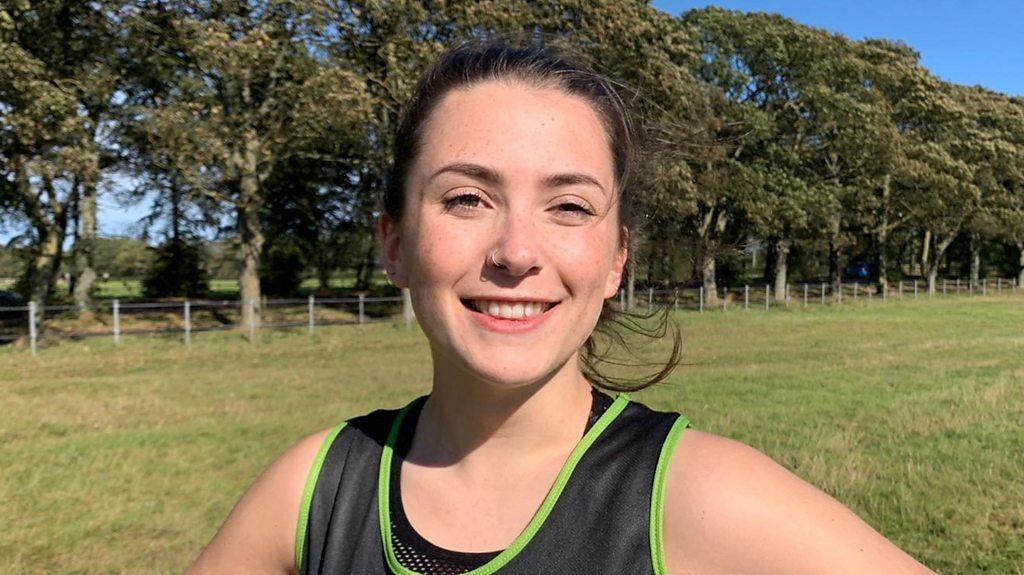Olcán Wilkes: Parents appeal for donor to save son's life
- Published
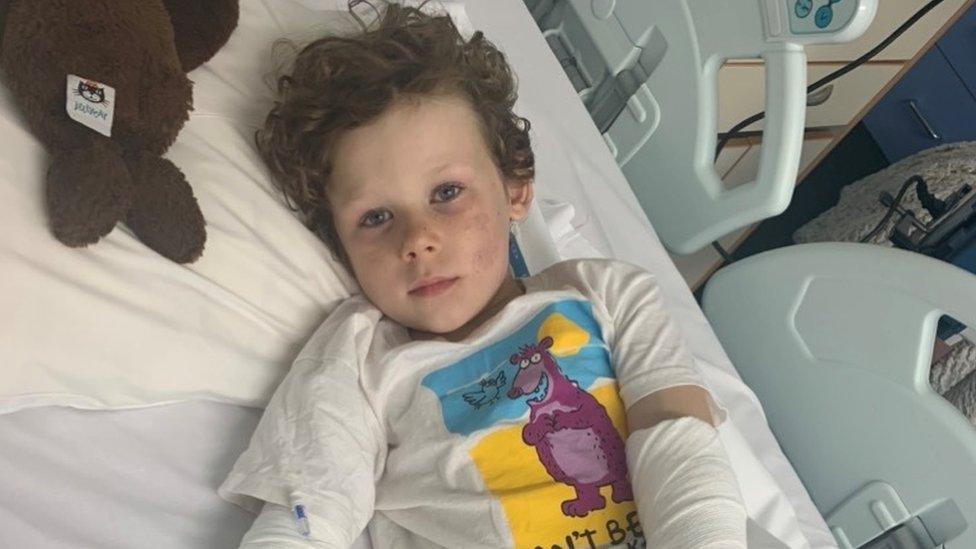
Olcán undergoes up to three platelet transfusions a week and two blood transfusions a month
The parents of a seven-year-old boy diagnosed with a life-threatening condition have made a desperate plea for bone marrow donors to step forward.
Olcán is a pupil at a school in Newent, Gloucestershire, who suffers from a blood disorder called aplastic anaemia.
He needs an urgent bone marrow transplant and parents Sam and Genevieve Wilkes are asking people to find out if they are a match.
"It could quite literally save his young life," said Mr Wilkes.
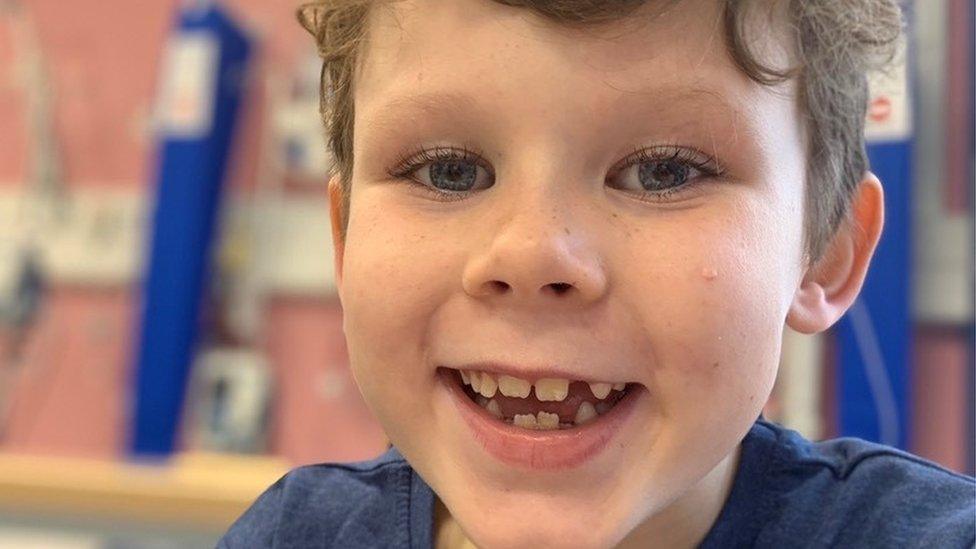
Olcán was diagnosed with the rare condition in September
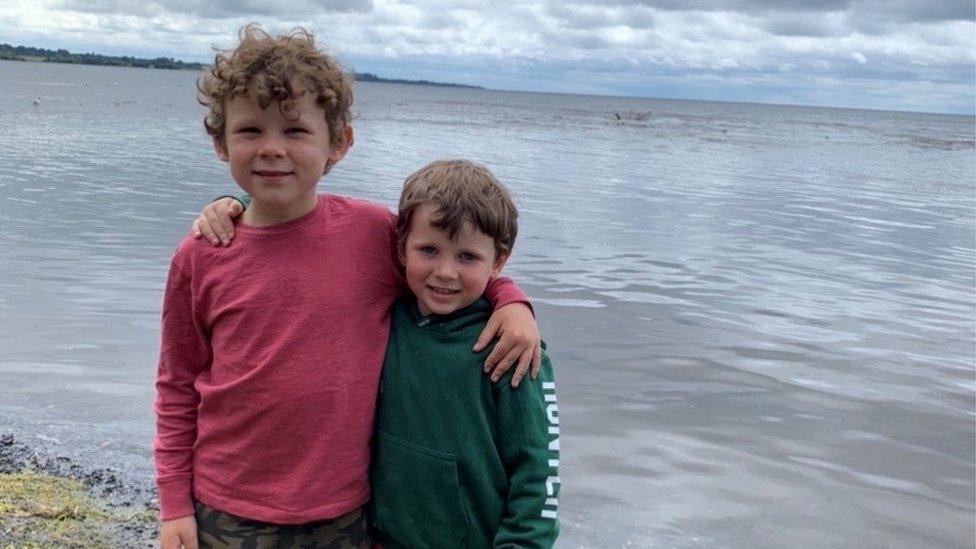
Football-loving Olcán with his four-year-old brother Hunter
Olcán was only six-years-old when he was found to have the rare condition in September, after his parents noticed severe bruising on his body.
Since being diagnosed, he has had more than 25 platelet transfusions and five blood transfusions but without a transplant, his life expectancy is severely limited.
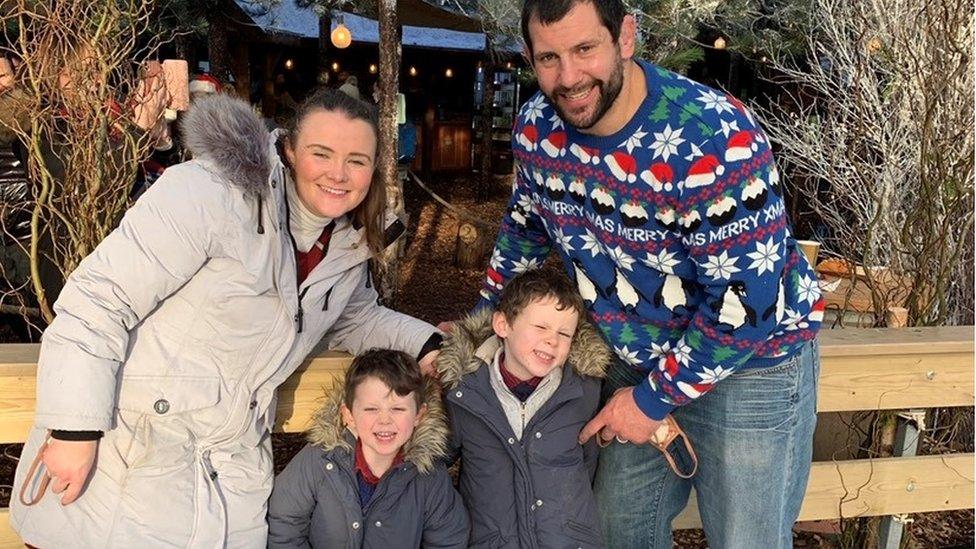
Olcán's parents are asking people to step forward as donors because no family members are a match for him
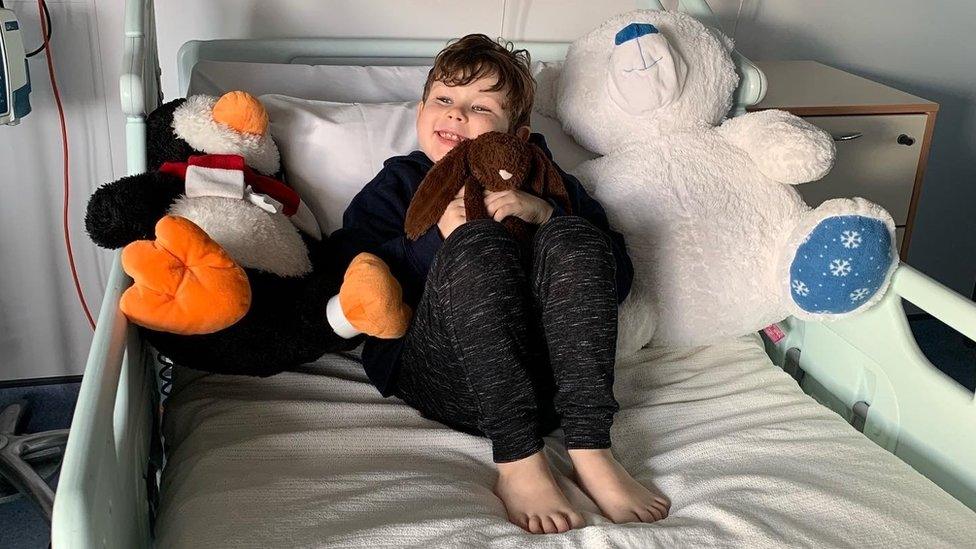
Since moving to Northern Ireland Olcán is able to continue his education and friendship groups through remote learning
"After Olcán's diagnosis, it took a while for the severity of it all to sink in," said Mr Wilkes, a farmer and former retained firefighter.
"We are desperate to encourage as many people as possible to take the two minutes it takes to register for the free swab, for Olcán and others like him.
"Those two minutes, and the time spent returning the swab, could quite literally save his young life," he added.
Olcán attends school remotely from his new home in Northern Ireland or from his hospital bed via a robot that follows the teacher and class around for the day, allowing him to continue with his treatment, without missing out on education and seeing his friends.
Doctors have told his parents they can not be certain how long he will live without treatment, but the average death rate for those with the condition is 70% within one year and 80% in five years.

Follow BBC West on Facebook, external, Twitter, external and Instagram, external. Send your story ideas to: bristol@bbc.co.uk , external
Related topics
- Published25 November 2021
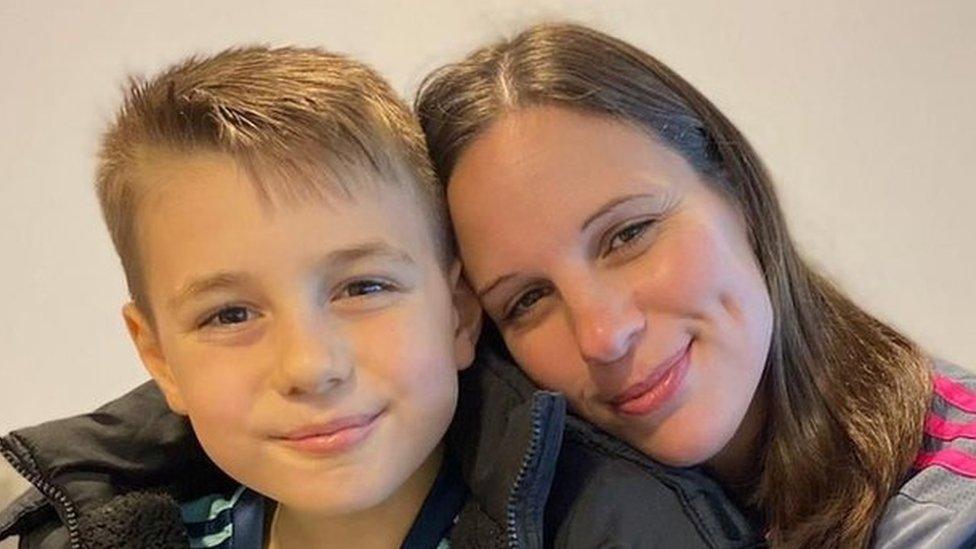
- Published7 August 2020
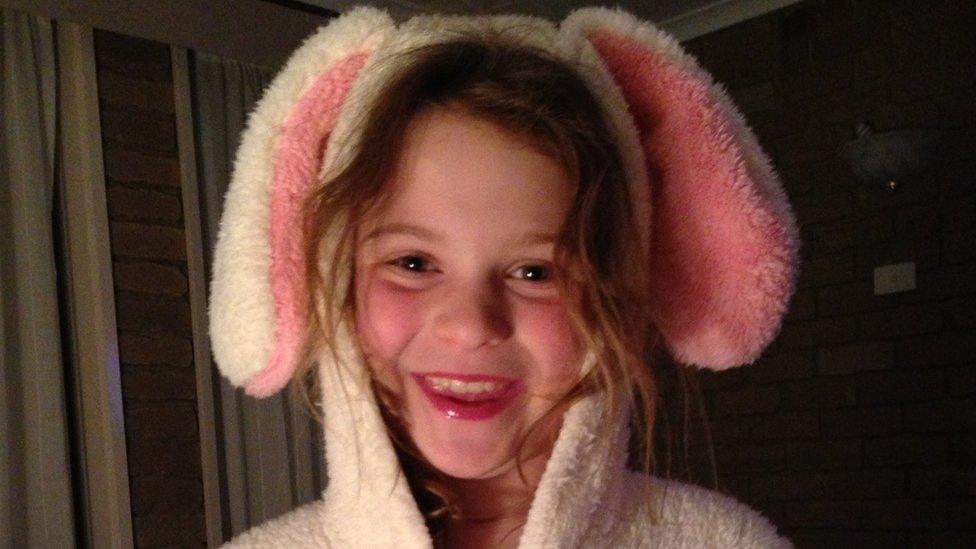
- Published8 June 2015
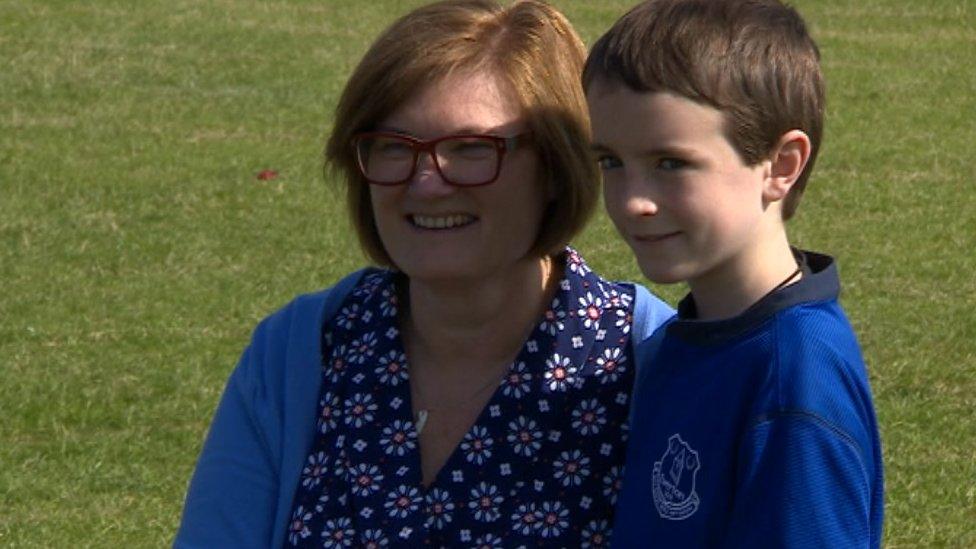
- Published26 September 2021
